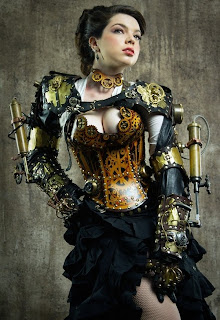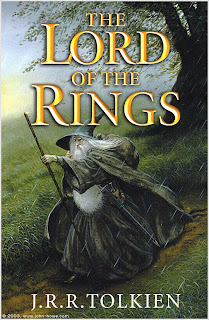BY ANONYMOUS
I was reading the comments under an article on how hard it is to self publish when I learned something about marketing. I have read a few short stories and none of them had a cover! I remember one story that was in the 'steam punk' genre that would have greatly benefited from a cover so that the reader would have an idea what to expect.
Steam punk cosplay
In traditional publishing the book cover would have been the most fundamental marketing device. Digital books don't have covers, but we can still use the principle.
I decided to practice making digital covers with some fictional books and stories. First I looked at what was out there.
I noticed how the name of the author is always in capitals.
This has a solid feel to it.
Then I made a few of my own using Google Draw. I ran into some things. The font that only works well in black, and black doesn't work with a lot of images. A lot of images are the wrong shape to resemble a traditional book cover. There are probably legal issues.
But all and all I found it fun and useful.
If you feel like getting a little finger practice, be sure to visit this cover contest on Reddit!
As a last thing I wanted you to know an artist I found. I stumbled upon him by searching for book covers for 'The Hobbit' (JRR TOLKIEN).
http://www.davidwenzel.com/home.html
If I ever write a book that would match the quality of his work I will contact him!




.jpg)
.jpg)

